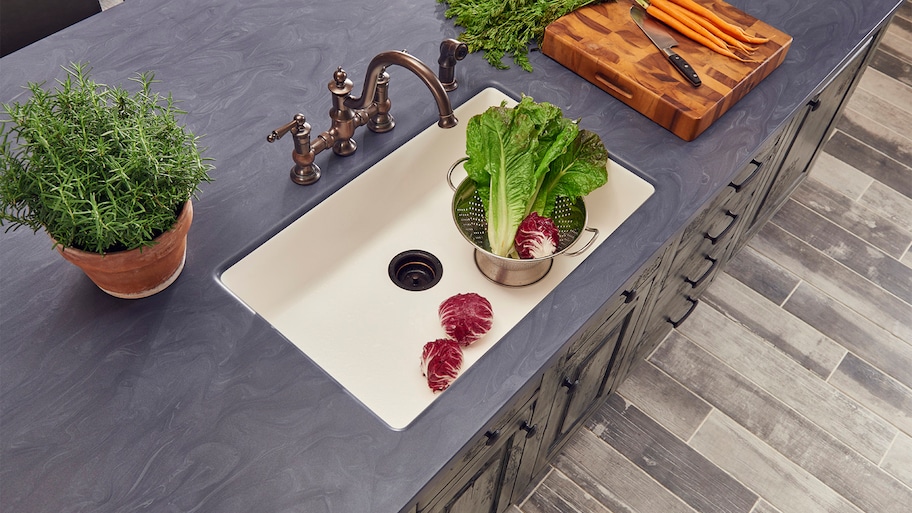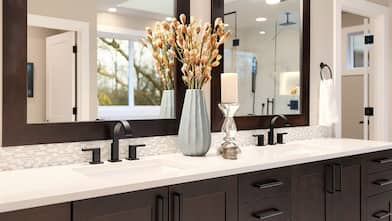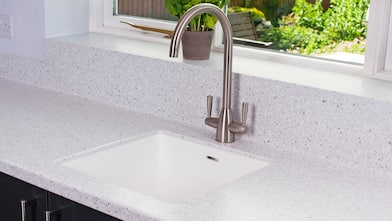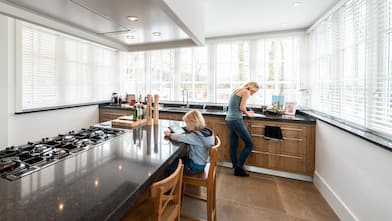These durable surfaces can be an economical—and stylish—choice
If you’re on a budget, Corian and other solid surface countertops might be a wise pick for your kitchen. These man-made surfaces are durable, easy-to-maintain, and usually more affordable than quartz or natural stone. Read on to learn exactly what Corian is and how it compares to other types of countertops.
What Is Corian?
Corian is a “solid surface�? material, meaning the man-made material has a solid composition from the inside out. It’s often used for countertops.
In 1971, chemical company DuPont introduced Corian Solid Surface to the marketplace. The first “solid surface�? countertop, the man-made or engineered stone material has a consistent composition. To make it, the company blends man-made acrylic polymers with natural minerals and stone-derived materials, then molds the substance into shapes.
After DuPont lost its patent on solid surface countertops, several companies introduced their own versions under different brand names, including Avonite and Wilsonart. Although Corian refers only to the DuPont brand name of solid-surface countertop, many use the term to denote all solid-surface countertops. That said, Corian tends to be the most highly regarded (and pricey!) of the solid-surface countertop brands.
If you choose this type of countertop, know that Corian surfaces can only be fabricated and installed by DuPont-certified Corian countertop installers near you.
Pros of Corian
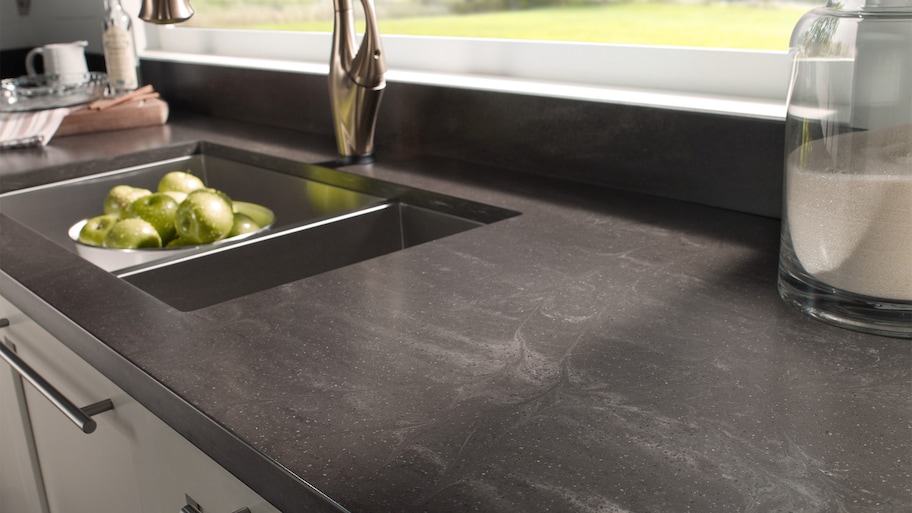
Why will you love Corian? Let us count the ways.
1. It’s Durable
When compared to (more affordable and softer) laminate, Corian is the more durable option. Because it’s non-porous and consistent in composition, Corian is also more stain- and crack-resistant than natural stone. Plus, solid-surface countertops are relatively easy to repair: If the surface gets scratched, scorched, or stained, you can restore it with abrasive scrubbing or sanding.
2. It’s Seamless
Although many consider quartz and natural stone to be the most attractive surface materials, Corian is also hard to beat on the appearance front. Its seams are virtually invisible, thanks to epoxy blended to match the countertop colors. Although Corian always used to go hand-in-hand with a neutral, speckled look, it now comes in more than 100 colors and designs, some resembling stone.
For an ultra-seamless look, you can order an integrated Corian sink, drainboard, or backsplash. Bonus: opt for the “Charging Surface�? feature, a unique add-on that lets you literally charge devices on the countertop.
3. It’s More Affordable Than Natural Stone
Corian countertops cost less than quartz or natural stone. Without labor, Corian starts at $40 per square foot. In comparison, marble countertops cost up to $100 per square foot, and granite countertops can cost $60 per square foot.
But keep in mind: A complex configuration and intricate design details can increase Corian countertops’ price.
Cons of Corian
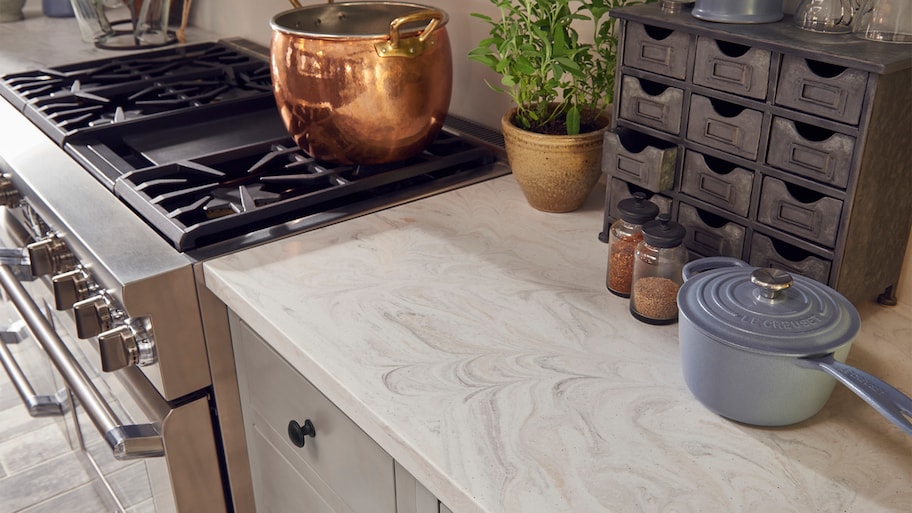
While there are many benefits to installing Corian in your kitchen, there are a few drawbacks to consider.
1. It’s Not as Durable as Other Materials
Corian is not as resistant to heat as granite or quartz, so don’t put hot pots directly on the surface. Solid-surface countertops are also softer than quartz or natural stone, meaning they’re relatively easy to scratch or dent.
2. It Doesn’t Raise Your Resale Value
And although installing Corian instead of marble is less harsh on your wallet, Corian may not lure potential homebuyers as much as true quartz or natural stone. So you might not recoup as much of your initial investment when it comes time to sell.
How Does Corian Compare to Other Countertop Materials?
Before you spring on a countertop, research the different countertops to find the best fit for your home.
Laminate
Laminate countertops and other surfaces are made of layers of plastic bonded to particleboard or kraft paper. As a result, they’re less durable than Corian and chip easily. Partly for this reason, they’re also less expensive than solid-surface countertops.
Quartz
As with Corian and other solid-surface countertops, quartz is a type of engineered stone. However, while solid-surface countertops consist of a ratio of 33% binding resins (which are man-made) to 66% minerals; quartz countertops are generally 10% resins to 90% minerals. That’s why Corian is more affordable, though less durable, than quartz countertops.
Granite and Marble
Granite and marble are natural stones, so they’re harder and more durable than Corian—although they can crack. They’re also generally considered more beautiful, though different Corian designs mimic their look.
Unfortunately, natural stone requires regular sealing and polishing, and marble can develop rust stains over time. Plus, granite and marble typically cost 10 to 20% more than Corian.
How to Care for Your Corian Countertops
As with anything, keeping your Corian countertops looking beautiful and HGTV-worthy involves regular upkeep:
To prevent Corian from melting or burning, use a trivet for hot pots and pans.
To guard against scratches, slice on a cutting board.
For cleaning, wipe with a wet, soapy cloth or a pH-neutral cleanser, such as one designed for granite. Don’t use window cleaners, which can leave a filmy residue.
To avoid spots and watermarks, dry completely.
Stay away from harsh chemicals and oven cleaners, which can degrade the finish.
If your Corian countertop is looking the worse for wear, you can refinish it yourself by sanding or hire a local pro for countertop resurfacing.


